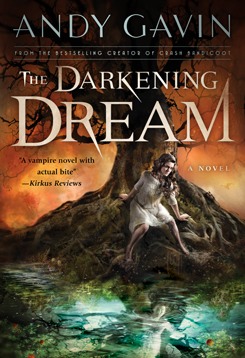 One of the weird and disconcerting things about the revision stage of novel writing is the waiting. For me a revision often goes like this:
One of the weird and disconcerting things about the revision stage of novel writing is the waiting. For me a revision often goes like this:
1. Receive a bunch of notes about problems or possible improvements for the book.
2. Become briefly depressed (1-2 days) as I ponder how to fix the problems.
2. Cheer up as I create a revision plan with little notes per chapter detailing my grand scheme to fix everything. I try and visualize in my head how the big picture of the story will be affected.
3. Do all the “little changes” that can be done without breaking the book and requiring a full read to fix.
4. Take one by one the bigger changes (including big cuts) and make them, attempting to repair the story as I make the changes, including finding any references in the story that are now inconsistant because of changes. Anytime a scene requires substantial changes I need to make the changes and then do at least one full sweep read of the scene to pickup typos and the like. Within each of these changes it often involves moving around passages and cutting stuff first, then blending in the changes and repairing the loose ends. I think of this as the surgery stage.
5. Sometimes certain “global” changes which involve small changes across a lot of the book are left out of the surgery. An example of this would be adding a pervasive trait or line of thought to a major character. For example in one draft I added a dead little brother into the history of the protagonist and needed various little references here and there.. These are things that can only be easily done in the context of a full read.
6. Start reading at the beginning. As I go through each scene correct any errors, line edit, revise, tighten etc. Insert in any changes that are part of large sequential changes, particularly things that involve complex reveals of information back and forth across the entire novel. If the changes in a particular scene are big, do a sweep read. An interesting note here is that one’s style evolves. Even simple things like how I use line breaks, or most particularly my style of dialog tagging change over time. The full pass is a good place to “modernize” scenes and try and bring them all up to the latest style.
7. After finishing the whole pass do line edit and compression passes on a few scenes that might have felt “fat” but for some reason I didn’t compress during the big sweep.
This whole process is very intense and I tend to do it in a big manic burst of energy. Then I have a new draft. Given that I’ve read the book so many times, I’m usually out of new ideas for improvement at that point. If I had any, I would’ve put them into the draft. I’m unlikely to get any more until someone else jogs my brain via feedback. I’m a maniac workaholic so I’d prefer to work steadily on the book until it’s done. Totally done. But at this point until I get some feedback the only thing I could actually do is read scenes over and over and “tune” the prose. However, If I just completed a big full read this is counter productive. One only gets so many reads of any scene before it becomes very difficult to actually pay attention, so doing too many back to back isn’t a good idea. Plus, what you can’t tell after big changes and cuts is how exactly the overall reveal of information in the book works for a new reader. As the author one intrinsically knows too much about everything. You need a virgin reader for that.
So I have to send the book out for comments and wait. I send it to my professional freelance editors, and I try and solicit as many friends and family readers as is reasonable for the draft with the goal of getting just a hand full of decent commentaries back.
I hate waiting. So I try to keep myself busy with other things. Catching up on my reading. Learning to Blog. Updating my synopses and/or query letter (mind numbing!). Searching the web for possible agents. All this is dull and not nearly as creatively rewarding as working on the book itself. What I really want to do is find out what might be wrong with it and fix it until it’s done.
But it takes at least two, usually more, weeks to get comments back. Arrgh! I’m used to video games where everything is done NOW NOW NOW. Let’s not even talk about the archaic mid-century operating speed of the traditional publishing biz — I’ll save that for another time — the only things slower than that are French silk factories, municipal construction, and the US PTO.
What I really SHOULD do is work on the outline for my next book. I do a bit of this, but it’s hard to jump full tilt into the early stages of another gigantic creative endeavor when what I really want to do is finish the one on my plate. I used to have this exact same feeling after we’d ship the US version of a Crash Bandicoot or Jak & Daxter game. I’d sit around waiting for the external QA department to approve the Gold Master, or the foreign groups to return their last tiny localization changes. Meanwhile, I could neither go on vacation nor devote proper creative energy to the next project.
Maybe it’s just my hyper kinetic “finish it!” type personality, or maybe it’s just part of the process.



